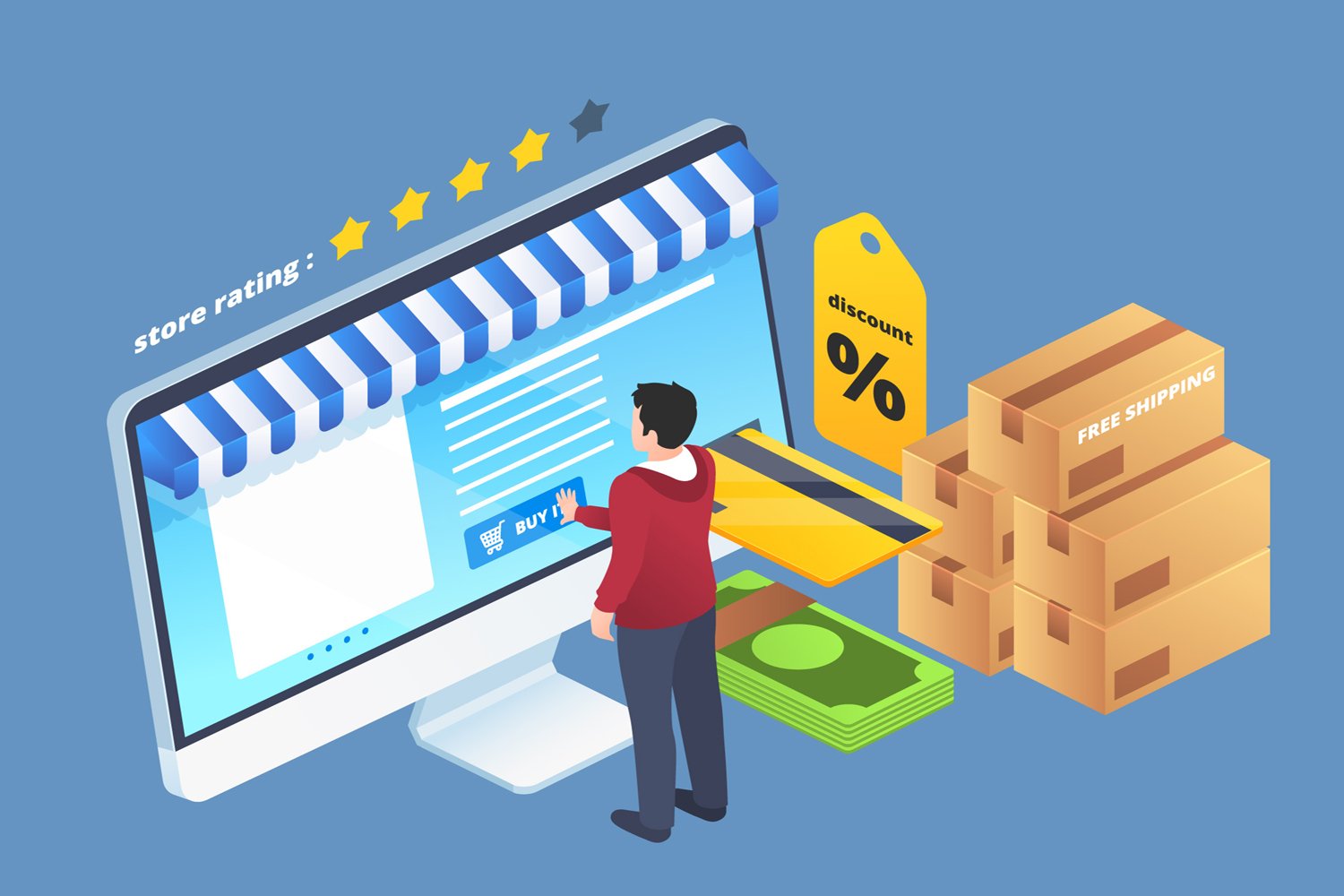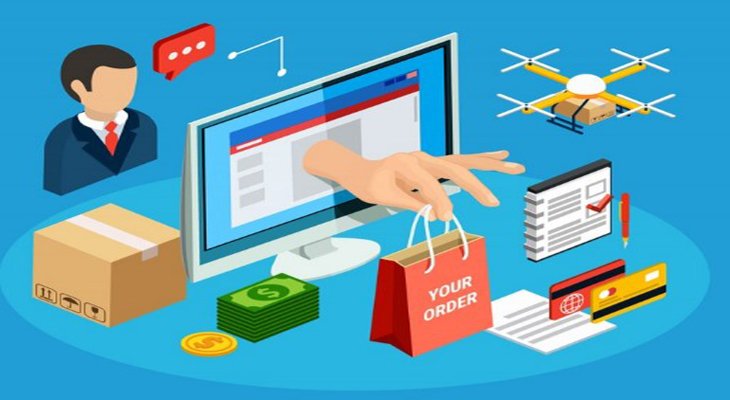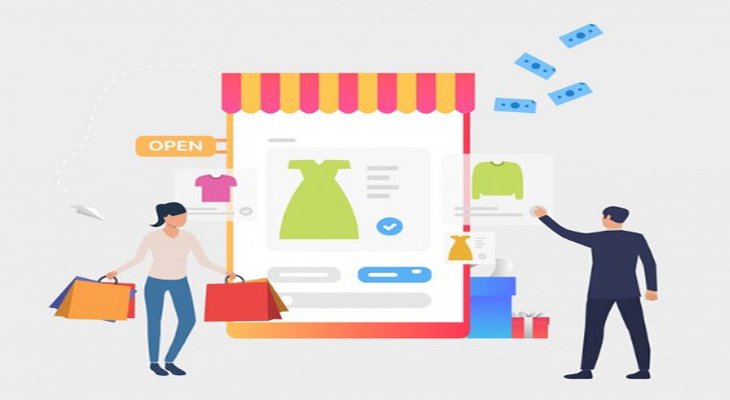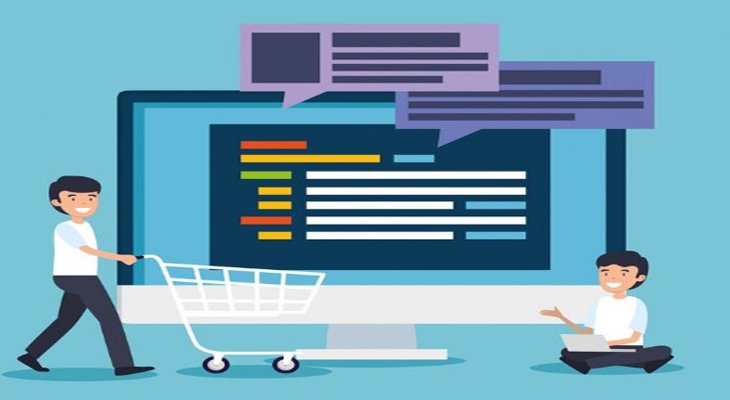
Comparing Oberlo and Shopify: Strategies for E-Commerce
In the fast-paced world of e-commerce, choosing the right platforms is key to success. Oberlo and Shopify stand out for dropshipping and online retail, offering distinct features, user-friendliness, and pricing options.
This article compares both, highlighting how they complement each other to enhance your e-commerce strategy, crucial for both new and experienced sellers to align with their business objectives.
Key Takeaways
- Shopify stands out as a comprehensive e-commerce platform with a vast app store and robust integration with dropshipping suppliers, including Oberlo, offering a user-friendly experience without the need for coding skills.
- Oberlo is a favored app for Shopify users, enabling easy import of products from suppliers and automating order fulfillment, though it may have a less extensive knowledge center compared to Shopify.
- The integration of Oberlo within the Shopify ecosystem simplifies e-commerce for users, allowing for seamless product addition and automated inventory management, which is especially beneficial for dropshipping businesses.
- Cost considerations are vital when choosing between Shopify and Oberlo, as users must navigate pricing plans to balance affordability with the desired functionality and tools for scaling their business.
- Shopify’s wide selection of apps and resources provides a competitive edge by optimizing store management, conversions, and overall site performance, which can be a decisive factor for many online retailers.
Introduction to Shopify and Oberlo: Understanding the Basics
Comprehensive Overview of Shopify vs Oberlo
Selecting the ideal e-commerce platform is critical for your business, and Shopify emerges as a leading option. It’s a comprehensive solution supporting a variety of online retail activities, including website design and inventory management, making it a favorite among dropshippers for its vast app marketplace and easy integration with suppliers like Oberlo and Spocket.
Oberlo, meanwhile, is an app crafted to augment Shopify’s capabilities for dropshippers, streamlining product imports and automating order processing. While it enhances the Shopify experience, it zeroes in on dropshipping necessities.
Comparing key features:
Shopify:
- Rich resource library
- Intuitive, no-code online store builder
- shcontrol
Oberlo:
- Designed for Shopify
- Simplifies adding products from suppliers
- Automates orders
- Offers educational content
Utilized together, Shopify and Oberlo form an efficient combination for dropshipping, leveraging Shopify’s robust infrastructure with Oberlo’s specialized tools.

Key Features and Differences: Oberlo vs Shopify
User Interface and Ease of Use
Shopify and Oberlo prioritize user-friendly interfaces and simplicity in product management, catering to both beginners and seasoned users. Shopify distinguishes itself with an approachable design and thorough guides for setting up and running online stores.
Oberlo, designed to work flawlessly with Shopify, offers a streamlined experience for dropshippers by facilitating easy product importation from suppliers directly into Shopify stores. This feature is especially useful for e-commerce novices or those looking to reduce administrative efforts.
Comparing their introductory features:
Shopify:
- Rich educational materials
- Interactive guides and training sessions
- Dedicated support for new customers
Oberlo:
- Simple dropshipping setup process
- Easy product importation to Shopify
- Efficient catalog management
Moreover, both platforms enhance customer engagement through modern tools like AR/VR, chatbots, and customized shopping journeys, aiming to boost customer satisfaction and drive sales.
Functionality and Standalone Software Capabilities
Assessing the individual strengths of Shopify and Oberlo reveals their unique contributions to e-commerce functionality. Shopify distinguishes itself with its adaptable API and extensive multi-channel sales capabilities, allowing for bespoke integrations and sales across different platforms, including social media and online marketplaces.
Conversely, Oberlo is tailor-made for enhancing the Shopify dropshipping experience, prioritizing efficient product imports and user-friendly operations for dropshippers over broad API utility. Below is a comparison of their core features:
Shopify:
- Versatile API for custom integrations
- Supports sales across multiple channels
- Manages extensive product information
- Offers scalability and security
Oberlo:
- Streamlines product importing
- Dedicated dropshipping support
- Intuitive interface for easy use
Shopify further excels in marketing, promotional tools, and detailed analytics for performance tracking, alongside ensuring a mobile-responsive design for optimal viewing on any device.
Oberlo, while more niche, perfectly complements Shopify by addressing the specific requirements of dropshipping businesses, facilitating easy product integration.
Import Options and Dropshipping Support
For e-commerce store setup, efficient product importation and dropshipping support stand out as pivotal. Shopify facilitates a versatile approach to populating your store, thanks to a wide array of apps and integrations for product imports.
Oberlo, in contrast, is honed for dropshipping, offering a simplified method for bringing in products directly from suppliers on platforms such as AliExpress.
Dropshipping, especially with low-cost providers like AliExpress, can yield substantial profits through competitive markups. Oberlo boosts this approach with features that streamline product personalization and ensure compatibility with supplier websites, vital for a smooth dropshipping operation.
Comparative highlights of import and dropshipping support:
Shopify:
- Offers scalability and advanced functionality
- Has native support for dropshipping
- Integrates with leading dropshipping applications
Oberlo:
- Tailor-made for Shopify integration
- Facilitates easy product import from AliExpress
- Automates the order fulfillment process
Choosing between Shopify and Oberlo for importing and dropshipping needs boils down to your e-commerce venture’s unique requirements and how you plan to interact with suppliers.
Transaction Fees and Cost Analysis
Managing transaction and payment processing fees is vital for e-commerce profitability. Costs from services like PayPal take a percentage of sales, but these can be minimized by comparing rates, passing fees to customers, or offering discounts for lower-fee payment methods like bank transfers.
Also, consider platform fees from services like Shopify, which may charge monthly or per-sale fees. Integrating these costs into your pricing from the start and choosing a platform that fits your business model is crucial for financial efficiency.
Here’s a breakdown of common fees and mitigation strategies:
| Fee Type | Common Sources | Mitigation Strategies |
|---|---|---|
| Platform Fees | Shopify, BigCommerce | Include in pricing, choose suitable fee structure |
| Payment Processing | PayPal, Stripe | Shop for rates, pass on costs, discounts for low fees |
| Shipping Costs | Supplier charges | “Free shipping” strategy, negotiate rates, larger orders |
| Import Duties/Tariffs | Overseas sourcing | Build into product prices, be aware of regulations |
It’s essential to account for non-negotiable sales and income taxes in pricing, with tools like sales tax calculators and advice from accountants ensuring compliance.
Shipping costs and import duties also impact profitability; strategies like incorporating shipping into product prices under ‘free shipping’ offers can help manage these costs effectively.

How Oberlo and Shopify Work Together: A Closer Look
No Technical Skills Required: Simplifying E-Commerce with Shopify
Shopify emerges as an ideal solution for entrepreneurs diving into e-commerce without technical know-how. Its straightforward and welcoming design allows anyone to launch and manage their online shop with minimal technical ability.
Setting up a store on Shopify is simple and involves:
- Choosing a theme that fits your brand’s style.
- Easily adding products with tools like Oberlo.
- Customizing your store for a smooth customer journey.
- Adding crisp product images and thorough descriptions.
Shopify supports its users with comprehensive guides and a robust support network, tackling any potential hurdles. The platform’s compatibility with numerous apps further extends its capabilities, enabling:
- Inventory monitoring.
- Order processing.
- Customer relationship management.
- Crafting impactful marketing strategies.
For those interested in dropshipping, Shopify’s seamless integration with suppliers like Oberlo simplifies the process, presenting it as a top choice for budding e-commerce entrepreneurs.
Oberlo’s Unique Features for Boosting Shopify Store Sales
Oberlo enhances Shopify for dropshipping businesses with its seamless integration and workflow optimization. It automates sales tasks, from product matching to price optimization, reducing manual efforts and enabling store owners to concentrate on growth. Key benefits include:
- Increasing average order value with upselling.
- Boosting brand and customer satisfaction through improved service and descriptions.
- Saving time with automated product matching and competitive pricing.
These features help Shopify merchants streamline operations and boost profits by maximizing sales opportunities and enhancing customer experiences.
Leveraging Shopify’s Default eCommerce Solutions
Shopify’s platform is both user-friendly and powerful, ideal for entrepreneurs looking for an easy yet effective e-commerce solution. It simplifies online store management by integrating with leading dropshipping apps, allowing for effortless setup and operation. Users can select themes, add products, and refine their store with minimal technical effort.
Shopify’s built-in features provide a competitive advantage, automating product matching, price optimization, and content enhancement to minimize manual tasks and focus on business growth. This setup underscores Shopify’s commitment to streamlining e-commerce operations and supporting store owners in their entrepreneurial journey.
| Integration | Benefit |
|---|---|
| DSers | Streamlines product sourcing and order fulfillment |
| Dropshipman | Simplifies product import and inventory management |
| Spocket | Offers access to unique products and suppliers |
| CJdropshipping | Facilitates global dropshipping operations |
| Eprolo | Provides branding and customization options |
| Oberlo | Enables easy import of dropshipped products |
| Temu | Connects with a new marketplace for diverse product offerings |
By leveraging these integrations, Shopify users can enhance their store’s functionality and provide a better shopping experience for their customers.
Pricing Comparison
Oberlo Pricing
Oberlo is a popular dropshipping app that integrates seamlessly with Shopify stores, allowing users to easily import products from suppliers directly into their Shopify store and ship them to customers with only a few clicks.
As of my last update, Oberlo offers several pricing tiers to cater to different business needs, but it’s important to note that Oberlo operates exclusively within the Shopify ecosystem. Therefore, while Oberlo itself may have a specific pricing model, users also need to consider the costs associated with running a Shopify store.
Free Plan
Oberlo’s Starter plan is free and is perfect for those who are new to dropshipping. It allows users to sell up to 500 products and fulfill 50 orders per month, which is a generous starting point for beginners. This plan includes basic features like automated product imports and order fulfillment, which can help new store owners get up and running without upfront costs.
Paid Plans
For businesses that need more capacity and advanced features, Oberlo offers paid plans. These plans typically include the ability to sell more products, fulfill more orders, variant mapping, bulk orders, real-time order tracking, and multiple user accounts. The exact pricing and features have evolved over time, so it’s recommended to check Oberlo’s website for the most current information.
Additional Costs
Since Oberlo is an app used within Shopify, users must also consider the monthly fees for maintaining a Shopify store. These fees vary depending on the Shopify plan chosen, with basic plans starting at a certain price point and scaling up based on features and support levels.
Shopify Pricing
Shopify is a comprehensive e-commerce platform that allows individuals and businesses to create online stores. It offers a wide range of features and tools for store setup, management, sales, and marketing. Shopify’s pricing is structured to accommodate businesses of all sizes, from small startups to large enterprises.
Basic Shopify Plan
Ideal for new e-commerce businesses with occasional in-person sales. This plan includes all the essentials for starting a new business, including website and blog setup, SSL certificate, and the ability to list unlimited products. The Basic plan also offers support for discount codes, manual order creation, and fraud analysis.
Shopify Plan
This mid-tier option is suited for growing businesses selling online or in-store. It builds on the Basic plan by offering lower credit card rates, better shipping discounts, and additional features like professional reports and the ability to create gift cards.
Advanced Shopify Plan
Designed for scaling businesses that require advanced reporting and lower transaction fees. This plan offers the best shipping conditions, advanced report building, and third-party calculated shipping rates, which can be crucial for businesses with high sales volumes.
Shopify Plus
For large enterprises or merchants looking to scale significantly, Shopify Plus provides a custom solution with dedicated support, enhanced capabilities, and scalable infrastructure. Pricing for Shopify Plus is custom and requires direct consultation with Shopify.
Additional Costs
Beyond the monthly plan fees, Shopify charges transaction fees unless using Shopify Payments. Additionally, users may incur costs for third-party apps (like Oberlo), themes, and domain registration.

Conclusion
In the fast-paced e-commerce sector, choosing the right platforms is vital. Our analysis shows that Shopify, with its vast app ecosystem and ease of use, is ideal for entrepreneurs of any level, while Oberlo enhances Shopify with specific dropshipping features.
This synergy can significantly benefit inventory management, pricing optimization, and creating an attractive online store. Leveraging the combined strengths of Shopify and Oberlo, based on user experiences and successes, can propel your dropshipping business to new heights.
Keep these factors in mind as you plot your e-commerce journey, selecting what best suits your business needs and preferences.
Frequently Asked Questions
What are the main differences between Shopify and Oberlo?
Shopify is a comprehensive e-commerce platform that allows users to create an online store, manage inventory, and process orders. It’s known for its ease of use and extensive app store. Oberlo, on the other hand, is a dropshipping app specifically designed for Shopify, which helps users import products from suppliers and automate order fulfillment.
Can Oberlo be used without Shopify?
No, Oberlo is exclusively designed to integrate with Shopify. It cannot be used as a standalone dropshipping solution without the Shopify platform.
What are some of the key benefits of using Shopify for dropshipping?
Shopify offers a user-friendly interface, a vast selection of apps for store management and conversions, seamless integration with dropshipping suppliers like Oberlo, and inventory management tools that are beneficial for tracking dropshipped products.
Is it possible to automate inventory management and order processing in dropshipping?
Yes, inventory management and order processing can be automated through platforms like Shopify and dropshipping apps such as Oberlo, which streamline the process and reduce the manual work involved in running a dropshipping business.
How does Oberlo enhance the functionality of a Shopify store?
Oberlo enhances a Shopify store by allowing users to easily import products from various suppliers, automate the order fulfillment process, and access dropshipping-specific features that can help boost sales and efficiency.
Are there any success stories or resources available for new dropshippers using Oberlo?
Yes, Oberlo’s website offers a range of articles on dropshipping strategies, marketing tips, and launching an online business. Additionally, there are success stories from dropshipping companies that can provide inspiration and insights into the industry.

Muhammad Saleem is the Managing Editor of Astraic, a leading online publication that covers the Web development and Digital Marketing. He has over a decade of experience in this industry, and has worked as a journalist, editor, and analyst for a variety of publications and organizations.

